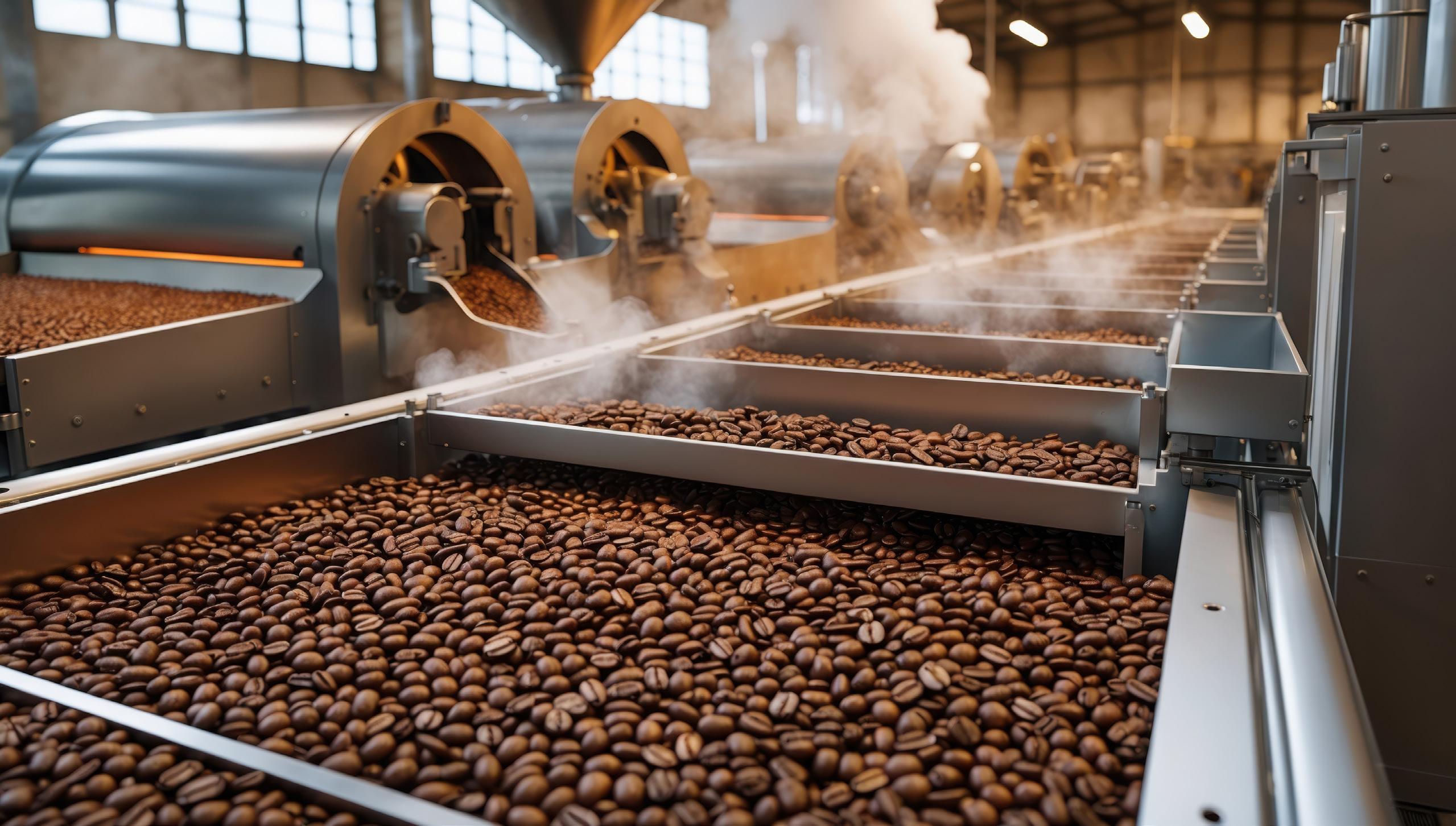UK MARKET TRENDS



AswemoveintoAutumn, the hospitality sector is facing a season shaped by both opportunity and pressure. From tightening protein supplies and volatile produce markets to changing sustainability standards and evolving customer preferences, operators are having to work harder thanevertoprotectmarginswithoutcompromisingonquality.
What’s clear is that agility and forward planning are essential. Menu flexibility, smart sourcing and carefulportionmanagementarenolongerjustbestpractice–they’revitaltoolsforstayingcompetitive inahigh-pressureenvironment.
In this edition of the trends report, we highlight key market movements across meat, fish,dairy and produce, along with practical insights to help you adapt with confidence.Whether it’s reviewingyour specifications,planningaheadfor thefestive seasonor exploringalternative ingredients,Entegra is heretohelpyoustayonestepahead.

Rising meat and tea prices have driven food inflation up for the sixth consecutive month. Supply issues are expected with turkey, and it is advised to order early for Christmas. Food prices rose by 4% in the year to July, up from a 3.7% increase in the year to June, according to the latest shop price monitor from the British Retail Consortium (BRC). Household grocery bills are on course to rise on average by £275 this year.

• Utilise the best price purchasing/mitigation supplied by your Entegra operations consultant
• Review your turkey volume requirements for the festive season and lock inthecurrentprice
A mild winter followed by a dry spring has led to increased pest pressure, particularly on brassica and leafy crops. Warmer temperatures have accelerated crop development, reducing resilience and heightening susceptibility to aphid and caterpillar infestations. Suppliers are enhancing pest management, and extra vigilance is advised during prep stages to identify any pest presence.
• Tenderstem Broccoli: Shortages continue; sourcing has expanded to Kenya.
• Spring Greens: Weather conditions are resulting in smaller, less well-formed produce.
• Red & White Cabbage: White cabbage is improving; red, currently from storage, is variable. The new season is expected by mid to late August.
• Butternut Squash: Supply has improved due to imports from Spain and Portugal.
• Fine Beans: A strong British crop is available and offers a viable alternative.
• Raspberries: Availability is reduced due to recent heat; imports are likely to supplement supply.
• Strawberries: Volumes are increasing as the crop enters peak season.
• Sweet Potatoes: Supply remains tight until the new Egyptian season begins later in August.

• Review your menus and, where possible, feature British seasonal produce to maximise seasonality, control costs and reduce food miles.
• Ensure strong product-to-menu linkage to support efficient purchasing, reduce wastage and streamline labour.
Milk deliveries across Great Britain rose by 5.0% in Q2 2025 compared to the same period last year, driven by improved milk-to-feed price ratios and a strong spring flush. Despite structural declines in herd size and youngstock availability, per-farm production has reached record levels. Organic milk production is also recovering.
Cream prices increased from £2.50/kg in May to £2.80/kg by late June, supported by strong summer demand, warm weather, and a bumper UK strawberry crop. Butter prices have followed a similar trend, rising month-on-month due to tight continental supply and more cream being sold fresh rather than processed.
Cheddar volumes are up 3.9% year-on-year, fuelled by strong retail demand. Cheese prices remain high, reflecting elevated input costs and tight stock levels. However, mild cheddar prices are beginning to ease slightly as buyer interest picks up.
Ongoing outbreaks of avian influenza continue to limit egg supply. While flock recovery is under way, the shift away from caged systems and continued high demand are keeping pressure on availability.
Fat-free and plain yoghurts are experiencing strong growth, alongside increased volumes of clotted, double and sour cream. Demand remains robust, driven by health-conscious consumers and seasonal trends.

• Tariffs on UK dairy exports to the US could affect pricing and trade volumes.
• Organic milk demand is rising both domestically and internationally, driven by continental shortages.
• Retail-aligned milk contracts remain stable, with slight positive movement.

Ops Top Tips:
• Milk: If jugs are served at breakfast or with tea and coffee, check that the jug size is appropriate. Oversized jugs can lead to unnecessary waste, especially if placed on tables at the start of service. Consider serving milk on request during warmer months.
• Cream and Butter: Reassess how often these are used. Could menus be adjusted to reduce reliance on them? Balance cream-based desserts across the menu. For butter, check your portion sizes – if waste is high, reduce portions to around 10–15g per serving.
• Eggs: Scrambled eggs are among the most wasted items on breakfast buffets. Manage batch volumes carefully or consider serving scrambled eggs to order.
• Purchasing: Most suppliers carry both dairy and eggs – ensure you’re sourcing from the most competitive provider.
The beef market continues to face tightening supply across both the UK and Europe. While the GB deadweight cattle price dipped slightly in July, it remains well above 2024 levels. Slaughter numbers are down 3.2% year-todate, with similar declines seen in the EU due to diseaseoutbreaks(suchasbluetongueinFrance and Germany), reduced profitability, and herd contraction. Key cuts including rib, rump and trim are particularly scarce. Reflecting these pressures,retailerMorrisonshasbrokenits100% British beef pledge by listing imported options, including Australian ribeye. Imports from South America are expected to increase from August, although global demand is likely to keep prices high into Q4.
UK and EU chicken markets remain under pressure from limited supply. In the UK, production continues to be affected by the industry’s transition to the Better Chicken Commitment, which has reduced bird availability by around 20%. While some short-term improvements have emerged, long-term structural constraints persist. EU producers are also still recovering from earlier Avian Influenza outbreaks, leading to shortages during peak seasonal demand. Smaller chicken fillets are particularly hard to source, contributing to ongoing price inflation across both fresh and processed lines. Non-retail
buyers may continue to experience challenges, as large retailers secure available volumes through long-term partnerships.
Turkey remains one of the most constrained proteins. UK slaughter volumes are down 30% year-on-year, with lower average bird weights compounding the issue. Frozen stock is in short supply, meaning most available product is now fresh. Supply challenges are expected to intensify towards Christmas, with record-high prices likely. EU prices have already reached new highs due to a lack of popular cuts, such as turkey butts. Clients are strongly encouraged to confirm festive orders as early as possible to avoid disruption.

UK lamb production has risen slightly due to higher carryover from 2024, and total sheep meat output is forecast to grow by 4% in 2025. However, a shrinking breeding flock and only modest gains in rearing rates point to longerterm supply challenges. Imports from New Zealand are also set to decline, following a 7.6% drop in lamb crop due to drought conditions. Although prices have remained relatively flat through mid-2025, continued volatility is expected.
The pork market remains relatively stable in both the UK and Europe. UK production is forecast to increase by 3.3% in 2025, supported by higher slaughter numbers, increased carcase weights, and a growing breeding herd. Spain, the EU’s largest producer, has maintained output at around 4.93 million tonnes over the past year. Demand is growing both domestically and internationally, with new trade deals opening up additional export opportunities. While no immediate supply concerns are anticipated, policy uncertainty and rising input costs remain key long-term risks. A recent case of Lumpy Skin Disease in France has triggered precautionary measures, though it is not expected to affect pork supply.
Consider expanding sourcing to include European, South American, and Australian/ New Zealand products. While this may not be a preferred option for all operators, it can help mitigate some of the cost pressures. Suppliers can provide CSR data on imported products if needed.
Reviewing product specifications and trim levels can ease pressure on costs and availability. Adjustments to trim requirements – particularly for primal and steak lines – can improve yield and reduce waste. Even small specification changes can deliver meaningful savings at scale.
Exploring alternative portion sizes or more flexible weight ranges for beef and chicken SKUs can support cost management. Smaller portions or adaptable specs, especially for premium cuts, can help manage rising input costs more effectively.
Farmed salmon prices have eased and are expected to remain lower throughout the summer, driven by increased biomass availability. This seasonal uplift typically brings the highest volumes of the year, helping to stabilise pricing. Smoked salmon prices are also expected to follow this downward trend, although future reductions will depend on market demand and biomass levels.
Both cod and haddock remain under supply pressure due to reduced landings, especially from Iceland, where quotas are nearly exhausted until September. Haddock remains particularly challenging, with ongoing shortages pushing prices higher. Frozen at Sea (FAS) prices are significantly above average. Scottish landings may offer some short-term relief from late July, albeit at elevated prices. Supply from the Faroe Islands may also help ease pressure. Larger cod fillets (170g+) are attracting higher premiums due to size-specific demand, and smoked haddock is seeing further inflation driven by raw material costs.
Coley prices have risen sharply, fuelled by tighter quotas, high trawler fuel costs, and growing demand as a sustainable alternative to cod and haddock. Labour shortages in UK fish processing
– especially post-Brexit – have further increased costs. With sustainability becoming a greater focus, the rising popularity of coley is contributing to ongoing price inflation.
Seabass prices have increased significantly due to reduced production in Turkey and Greece, the world’s leading suppliers. High sea temperatures, elevated mortality rates, and lower restocking levels are driving supply constraints. Feed, labour and energy cost increases – combined with strong export demand supported by a weak Turkish lira – are keeping prices elevated. Environmental and sustainability regulations are also adding complexity to the supply chain.

Hake prices remain volatile, driven by strong export demand. Dover sole supply is expected to tighten now that the spawning season has ended, with prices forecast to rise as fish move offshore. While mackerel is typically featured in summer menus, current sustainability concerns limit its suitability for some operators.
Portion size: Review whether fish portions can be reduced in weight while still presenting well. Cutting on an angle or using bone-in cuts (darnes) can help maintain visual appeal. A 6oz / 170g battered fillet remains a good benchmark for fish and chips.
Menu naming: Consider removing the fish species from ‘fish and chips’ menu listings. Using a more generic name allows flexibility to choose the most cost-effective white fish available.
Smoked salmon usage: Monitor smoked salmon use to manage waste and control consumption. On buffets, consider alternating smoked salmon with more cost-effective smoked fish options on different days.

Total Alcohol value grew by +3.6% year on year. Driven predominantly by the LAD category;
• Beer grew by +5.4%.
• Cider also in growth +13.0%
• Spirits sales move to be flat this quarter vs LY.
• Wine sales remain a challenge -1.5% YoY
• Lager value moves into growth at +4.5%
• Stout growth continues +20.4%
• World Lager +7.3%
• Core Lager remains in decline at -2.1%.
• Keg ale +2.0%
• Cask Ale -5.4%
• Cider grew this period by +13.0%
• Standard Apple cider improves to be flat this month, as premium variants continue to grow with premium apple +21.0% and super premium apple +18.0%
Coffee
Expected Cost Changes (H2 2025) Category
Origin
Beans 6-8%
Compostable Cups & Lids 12-15%
Double-Walled Branded Cups 10-14%
Takeaway Packaging (Napkins, sleeves, Carriers) 8-12%
Retail Coffee Menu Prices 5-10%
Coffee Beans:
Global prices remain elevated due to:
• El Niño-linked droughts in Brazil reducing crop yields
• Labour shortages and higher minimum wages in Colombia and Central America
• Increased costs for freight, port fees, and insurance premiums
– UK importers are reporting FOB price increases of ~15–20% year-on-year, though buyers see ~6–10% passed through depending on contract type.
– Specialty beans and decaf are more affected due to niche processing and smaller volume availability.
Compostable & Branded Cup Costs:
• Raw material prices (PLA, bagasse, recycled cardboard) continue rising due to:
– Supply shortages and energy input costs
– Tightened EU/UK regulations pushing demand for sustainable formats
– Compostable lids, stirrers, and sleeves up ~10–15%
Custom-printed or branded double-walled cups face:
• Longer lead times
• Minimum order quantity increases
• Price rises of 10–14% in Q3–Q4 2025
– Some distributors are now charging ecotax surcharges of ~2–4% on sustainable disposables


Ops Top Tips:
• Review your current coffee production methods. Are you brewing more than you need, resulting in wastage? If so, consider reducing batch sizes or repurposing excess coffee for iced drinks, ice creams or granitas.
• Assess the serving vessel – is it appropriately sized for the portion sold or expected? Oversized cups may lead to increased product use and waste.
• Revisit your coffee pricing. Could small adjustments boost profitability? Work with your operations consultant to carry out a local competitor tariff review to inform any pricing changes.
ReStart Initiative by Star Linen
Purpose:
A non-profit programme designed to provide sustainable bedding solutions for the hospitality, leisure, and education sectors by re-purposing old bedding (mattresses, duvets, pillows, toppers) instead of sending them to landfill.
The ReStart Proposition
• Collection of used bedding (duvets, pillows, mattresses).
• Meticulous deconstruction to extract materials.
• Collaboration with experts to create new products.
• Transformation into new items such as:
• Police/MOD stab vests
• Car insulation
• Furniture foam
Key Benefits
• Waste Reduction: Lowers environmental impact and promotes a circular economy.
• Cost Savings: Reduces waste disposal costs.
• Brand Enhancement: Boosts reputation via sustainable practices.
• Transparency: Provides certification of recycling process.
• Customer Loyalty: Aligns with eco-conscious consumer values.
1. Communicate: Customer contacts Star Linen to express interest in recycling bedding items.
2. Calculate Volume:
Star Linen requests exact item count and gives a cost estimate. Upon approval, the customer is connected with TFR Group.
3. Collection: Customer arranges pickup with TFR (currently for large volumes via dedicated vehicle).
4. Certify: TFR provides a waste transfer certificate, supporting the customer’s Scope 3 sustainability reporting.


Individual Portions
3-7 min delivery, Gourmet dishes from master chefs
Hilton Group
Boosted F&B revenue

Catering Packs
Scalable for 50+, minimal staff, combioven integration
Expanded 24-hour dining options
RBH HOSPITALITY

Consistent quality across locations

Benefits
65%+ profit margins, operational efficiency, guest satisfaction
Hotel Saint, London
Avoiding a staff-meals chef
Enhanced guest satisfaction scores with better room service
Launched events catering in properties without catering teams


• Free bins – no hire charges or delivery fees, customers only pay for waste collections
• All waste types collected – including general waste, cardboard, dry mixed recycling, sanitary, clinical, dental, hazardous and all other industry waste types
• Complete UK coverage – we collect waste anywhere in the country
• Focus on recycling – no waste goes to landfill, its all recycled, recovered an reused
• Flexible collections – daily, weekly and fortnightly collections to suit your business needs
• ISO certified – we have 2 ISO certifications for quality and environmental management systems





• Rated by customers on Trustpilot


• Access to 100+ waste experts
• Free noobligationquote bespoke to your business
• Dedicated Account Manager experienced waste management in your industry
• A Waste Audit to improve your recycling and create a cost effective waste plan
• Excellent customer service friendly and expert team


